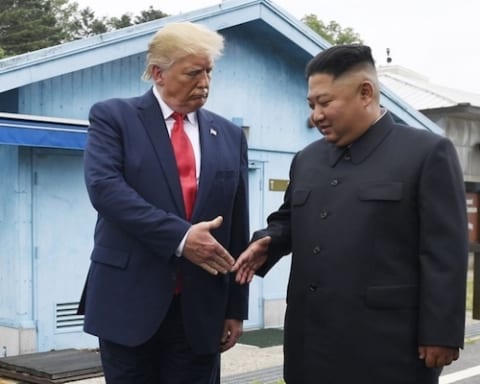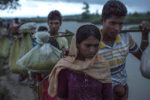Rakhine, Myanmar, LC
The Arakan Rohingya Salvation Army (ARSA) has claimed responsibility for the coordinated attack of upwards of 30 police posts and an army base in Rakhine state, Myanmar, on Friday. Reuters reports that at least 59 of the insurgents and 12 members of the security forces were killed, according to the army and government.
State authorities claim that an estimated 150 insurgents attempted to storm the base but “soldiers fought back.”
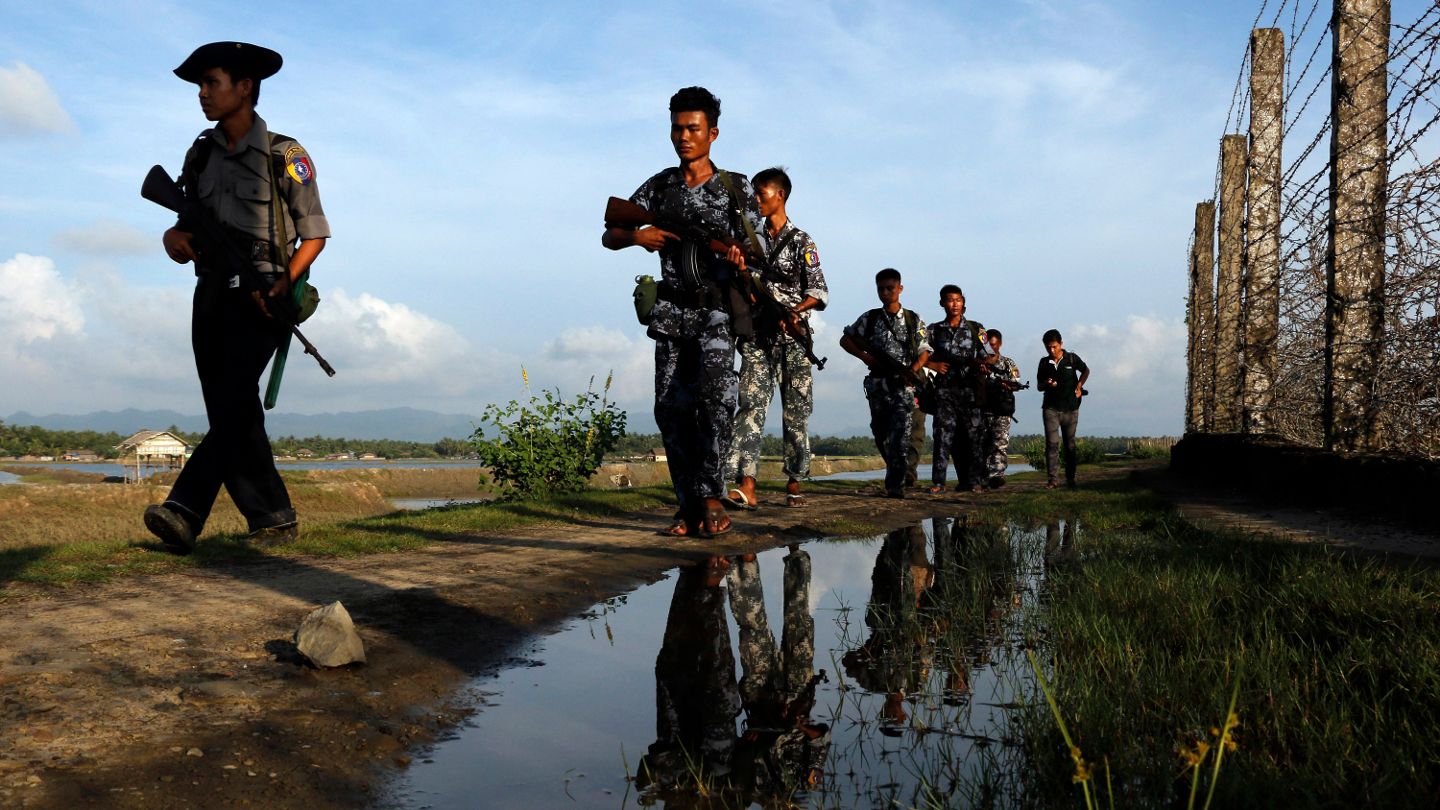
State Counsellor Daw Aung San Suu Kyi issued a statement condemning the attacks, stating “It is clear that today’s attacks are a calculated attempt to undermine the efforts of those seeking to build peace and harmony in Rakhine State. We must not allow our work to be derailed by the violent actions of extremists.”
The Arakan Rohingya Salvation Army, led by Ata Ullah, claims to be waging a war against the oppression of the Rohingya community.
In an August 24th statement posted to a credible Twitter account, ARSA stated “We are defending against the #Burmese colonizing forces … This is a legitimate step for us to defend the world’s persecuted people and liberate the oppressed people from the hands of oppressors!”
This is a legitimate step for us to defend the world's persecuted people and liberate the oppressed people from the hands of the oppressors!
— ARSA_The Army (@ARSA_Official) August 25, 2017
In video released by ARSA on August 16th, the group warned of retaliation.
ARSA Commander demands #Myanmar Gov't to demilitarize #Arakan state & warns of retalitions if they fail to fulfillhttps://t.co/xH0n8iLK96
— ARSA_The Army (@ARSA_Official) August 16, 2017
The United Nations has called the Rohingya “the most persecuted minority in the world”. Just the day before the attack, a commission led by former UN chief Kofi Annan said that Myanmar must stop restrictions on movement and citizenship for the Rohingya minority if it wants to avoid fueling “extremism” and bring peace to Rakhine state.
Thursday, the Advisory Commission on Rakhine State released the full final report titled, “Towards a Peaceful, Fair and Prosperous Future for the People of Rakhine”. The report gave 88 separate recommendations, to “address the suffering and frustrations of the people of Rakhine State”, covering topics ranging from citizenship, to freedom of movement, humanitarian access, education, health and access to the state’s justice system.
According to the report:
“Rakhine also represents a human rights crisis. While all communities have suffered from violence and abuse, protracted statelessness and profound discrimination have made the Muslim community particularly vulnerable to human rights violations. Some ten percent of the world’s stateless people live in Myanmar, and the Muslims in Rakhine constitute the single biggest stateless community in the world. The community faces a number of restrictions which affect basic rights and many aspects of their daily lives. Approximately 120,000 people are still left in camps for Internally Displaced People (IDPs). The community has been denied political representation, and is generally excluded from Myanmar’s body politic. Efforts by the Government to verify citizenship claims have failed to win the confidence of either Muslim or Rakhine communities.”
The report added, “Unless current challenges are addressed promptly, further radicalization within both communities is a real risk.”
Kofi Annan had been appointed by state counsellor Aung San Suu Kyi to head the year-long commission to address the divisions between the Rohingya Muslim and Buddhist communities in the western state, one of the poorest in the country.
The Rohingya population is roughly over one and a quarter million and they live mainly in Rakhine State in the north of the country. The Rohingya living in the Rakhine state are denied citizenship and have their travel restricted. Many Buddhists across Myanmar regard them as immigrants from neighboring Bangladesh.
Earlier this week, tensions mounted as hundreds of Rohingya Muslims had been blockaded in their neighborhood by Buddhists in a western Myanmar village, according to residents. Reports from aid workers, monitors, and villagers were that Muslims in the village of Zay Di Pyin had been besieged, prevented from leaving their enclave to go to work, or access food and water for the last three weeks.
Zay Di Pyin has around 5,000 residents and both a mosque and a Buddhist monastery. 700 Rohingya Muslims reside inside the neighborhood which has had its entry points blocked with fences since late July.
Local police had denied that the free movement of Muslims and access to work had been blocked, but did acknowledge that Rakhine Buddhist villagers were limiting the quantity of food bought by the Rohingya Muslims.
“The concern in Zay Di Pyin is that this could escalate into violence between the two communities,” said Chris Lewa of Arakan Project, a Rohingya monitoring group.
India knows Rohingya Muslims face violent persecution in Myanmar. It shouldn't threaten to deport 40,000. https://t.co/HZHhoB3fvB pic.twitter.com/yzs8xplBAo
— Kenneth Roth (@KenRoth) August 16, 2017
Ethnic violence broke out in the Rakhine state capital Sittwe in 2012, killing nearly 200 people and displacing 140,000. In October 2017, Rohingya insurgents killed nine police officers in northwest Rakhine. After the killings, the military cracked down and 87,000 Rohingya fled to Bangladesh this year alone. The military has been accused of rape, murder and arson.
LIMA CHARLIE NEWS
Lima Charlie provides global news, insight & analysis by military veterans and service members Worldwide.
For up-to-date news, please follow us on twitter at @LimaCharlieNews
In case you missed it:
https://vimeo.com/181417292
https://vimeo.com/181126927
https://vimeo.com/181321014

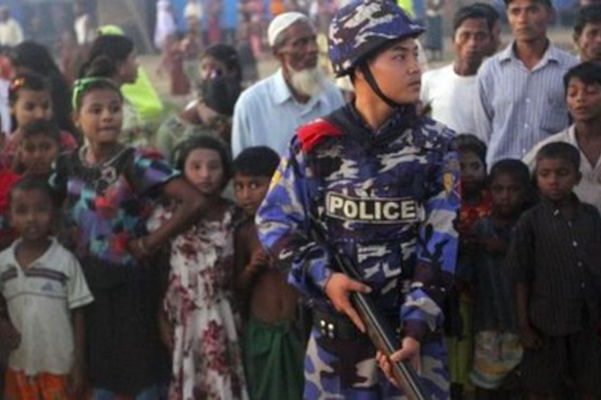
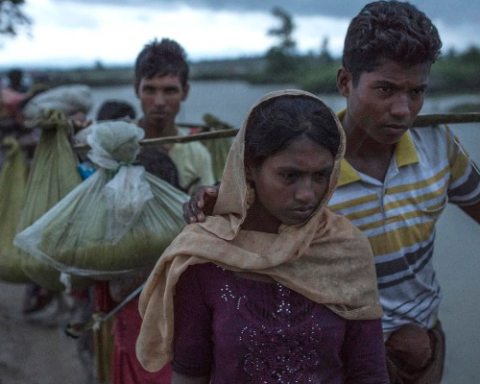



![Blossoming Russo-Turkish alliance leaves U.S., NATO behind [Lima Charlie News]](https://limacharlienews.com/wp-content/uploads/2019/07/Russia-Turkey-alliance-leaves-U.S.-NATO-behind-480x384.png)

